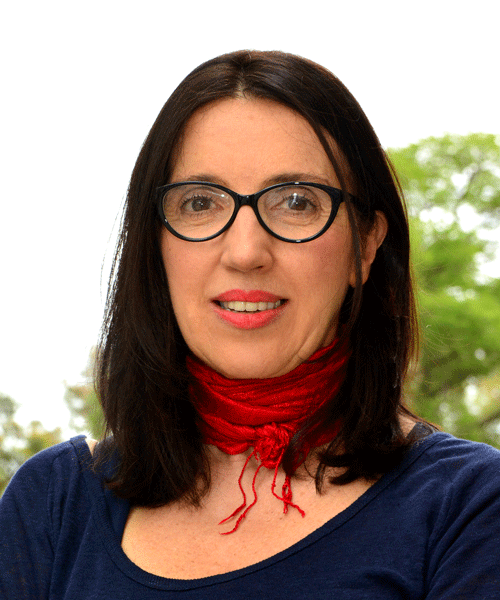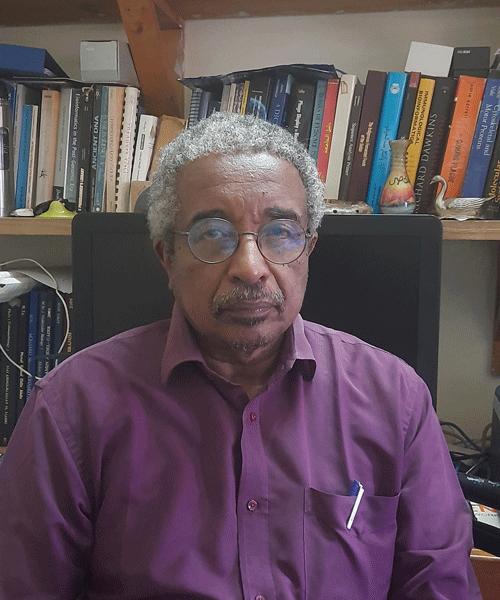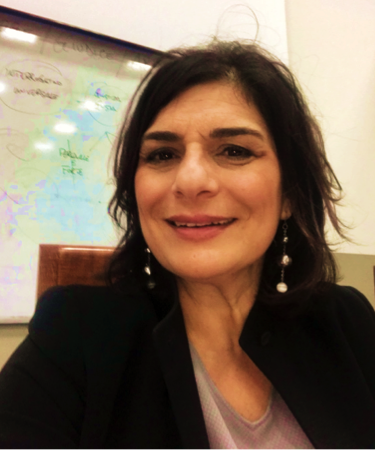With renewed vigour from enduring years of pandemic restraints and a rich and diversified programme for Italian and English audiences, the 11th edition of the international science festival Trieste Next brought local science institutions together again this year.
The three-day festival, which took place 22–24 September, brought a new focus this round under the theme of 'Science boundaries. Innovation and research: ethical limits and new frontiers', and featured more than 300 panellists and speakers.
UNESCO-TWAS organized a round table titled 'Circular economy and biotechnology for sustainable development in the global South', on 23 September.
According to the United Nations Conference on Trade and Development (UNCTAD), circular economy “entails markets that give incentives to reusing products, rather than scrapping them and then extracting new resources.”
The aim of the round table was to address the importance of a circular economy for releasing countries with a scientific and technological gap from an endless cycle of efforts, allowing them broader participation in the international scene. TWAS Programme Coordinator Max Paoli chaired the round table, which was hosted in the prestigious Palace of the Presidency of the Friuli Venezia Giulia Region, in the central Piazza dell'Unità d'Italia in Trieste, Italy, the home city of TWAS.
The three panellists, each an expert in the circular economy or biotechnology, offered intertwined views of a complex yet fascinating field that includes science and technology, social issues, and economical policies. The speakers were:
- Lucía Pittaluga, a Professor of Economic Development with the Universidad de la República, in Montevideo, Uruguay;
- Muntaser Ibrahim, a Professor of Molecular Genetics in the Department of Molecular Biology, Institute of Endemic Diseases at the University of Khartoum, in Khartoum, Sudan;
- Maria Colurcio, a Professor of Management at the Magna Graecia University of Catanzaro, Italy.

Perspectives on circular economy
Pittaluga, whose current scientific interest is in sustainable circular bioeconomy, is also a consultant to multilateral development institutions and government agencies in Latin America. Her presentation focused on the future of food systems in Latin America and the Caribbean, reflecting on its potential role in the circular economy.
In her speech, Pittaluga underlined that a circular economy—based on the three pillars of “reduce, reuse, recycle”—would require a systemic change. It would offer an economic model that works for everyone by addressing threats like climate change and the loss of biodiversity, which are especially dangerous for developing countries.
And she stressed the importance of being frugal: "We need to move from a lifestyle based on nice-to-have, to an approach based on need-to-have, to avoid overexploitation and useless waste of goods," she said. "The idea of 'enough' should be the guiding principle of our lives".
Pittaluga also mentioned three major productive areas that are a priority for the circular economy in Latin America and the Caribbean: the mining and extractives sector, waste management and recycling, and the food systems. Regarding the food system, Pittaluga observed that some major forces are locking the food system in its current unsustainable trajectory. These forces are technological innovation, which is driven by profit and not by the ethics of sustainability, and the failure of science to play its role in this critical debate.
Another panellist, Muntaser Ibrahim, is a TWAS Fellow since 2007 and a founding member of the Sudanese National Academy of Sciences and African Society of Human Genetics. His research focuses on the evolutionary aspects of diseases in relation to human genetic diversity.
His presentation focused on the diaspora of scientists in the South of the world, who are a resource for the hosting countries. "The potential of many mature scientists is wasted or not fully utilized," he said. "We should see scientists as a rare commodity and include them in the concept of cyclical economy, thus allowing a better usage of their talent and capacities."
With the current challenges that the world is facing, making use of scientists’ skills is becoming mandatory, he added. "We have inspiring examples of scientists who experienced a diaspora, and who made a tremendous impact through very short liaison with native institutions, increasing prospects of development by transferring knowledge, skills and technology."
With her presentation, Maria Colurcio offered examples focused on Italy, where the recycling rate is higher than in the rest of Europe (68 per cent compared to the European average of 35 per cent).
She mentioned young Italian entrepreneurs who set up a start-up based on recycled materials. In one case, two entrepreneurs from Turin, Italy, found a way to reuse unsold bread, turning it into a natural beer. Since bread contains both sugar and yeast, they were able to reduce the use of raw materials by up to 30 per cent.
In another case, two young Italian women created fabrics out of a common kind of waste: orange peels. Now, these fabrics are used by top Italian brands to make fashionable orange-based collections of nice outfits. What can coffee leftovers be used for? They can be used to produce ecological coffee pellets for the stove, Colurcio showed.
"Business models that are sustainable from the environmental and social point of view are essential today," Colurcio said. "We should aim at improving two sectors: the eco-design of products, focusing on durability and the reuse of products, and the circularity of production processes, developing regenerative bio-economy."
A successful public outreach
During the three-day event, TWAS was also present – alongside the InterAcademy Partnership (IAP) and the Organisation for Women in Science for the Developing World (OWSD) at a central gazebo in Piazza Unità, where TWAS staff showcased the Academy's activities and liaised with school students, offering a board game called Go-Goals.
The game offers an overview of the UN Sustainable Development Goals, through a set of questions and answers on the 17 Global Goals. Players are requested to answer questions on poverty, water, education, energy and others, to test their knowledge of the challenges that the international community faces and should be considered a global commitment.
Cristina Serra

